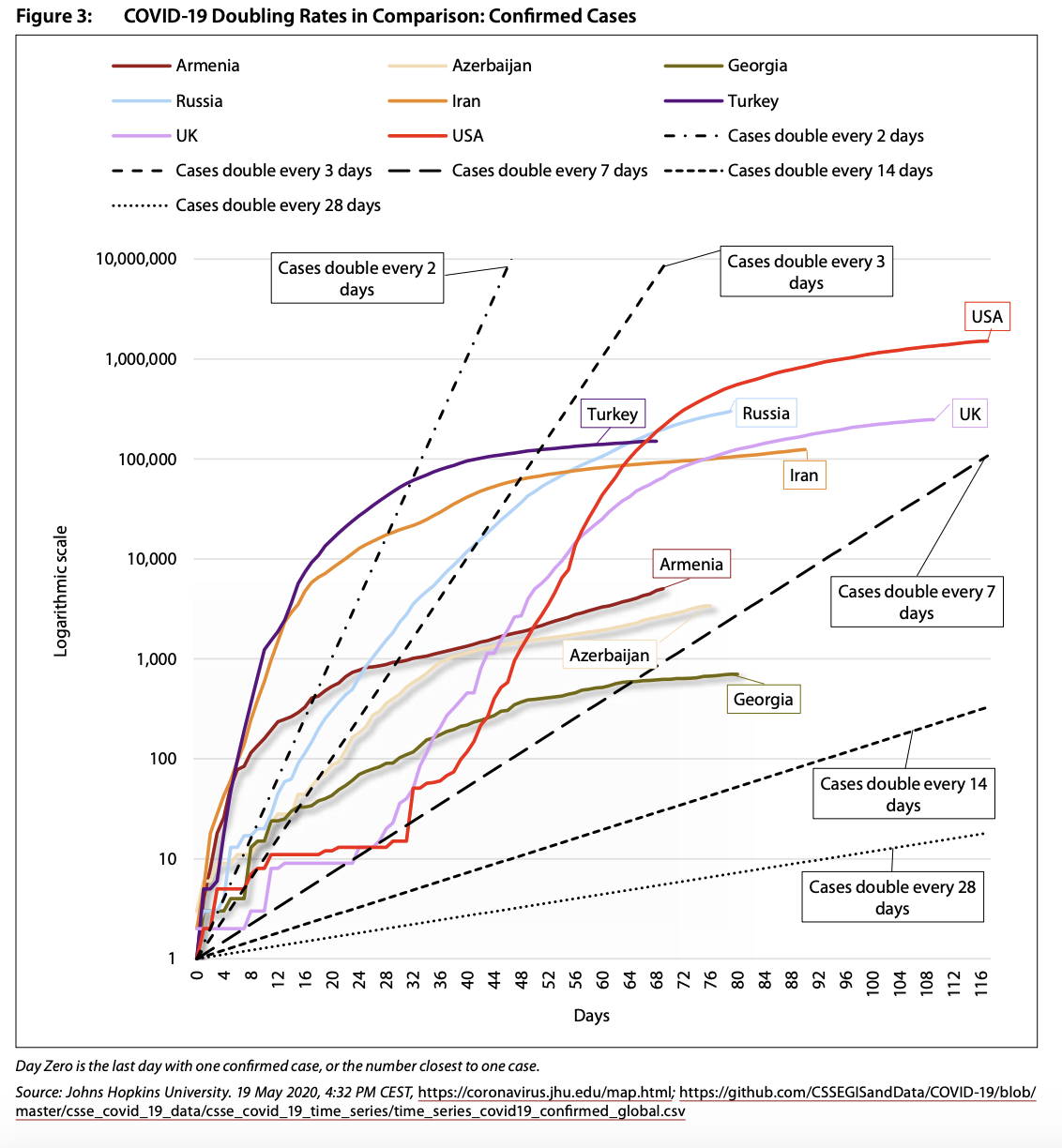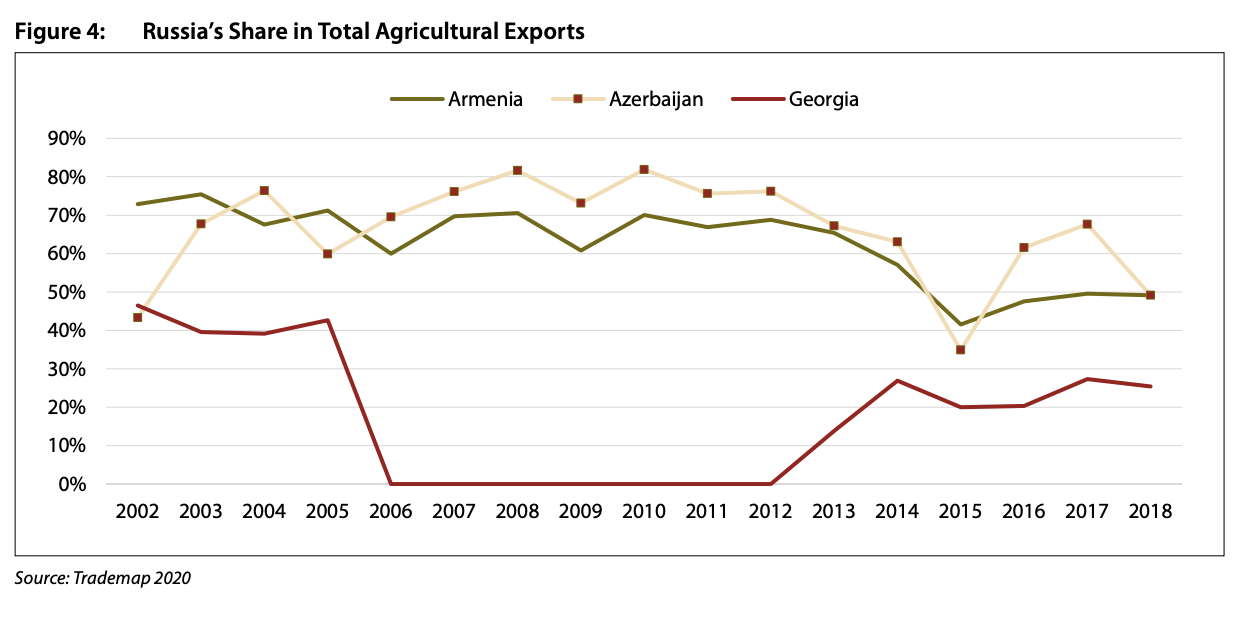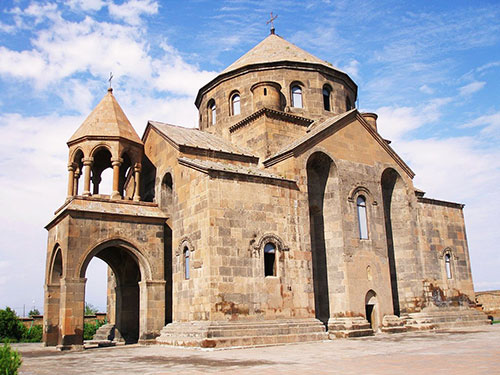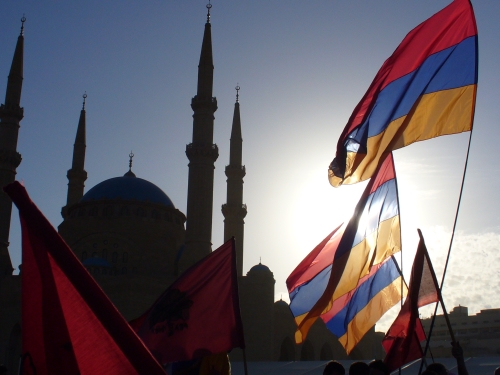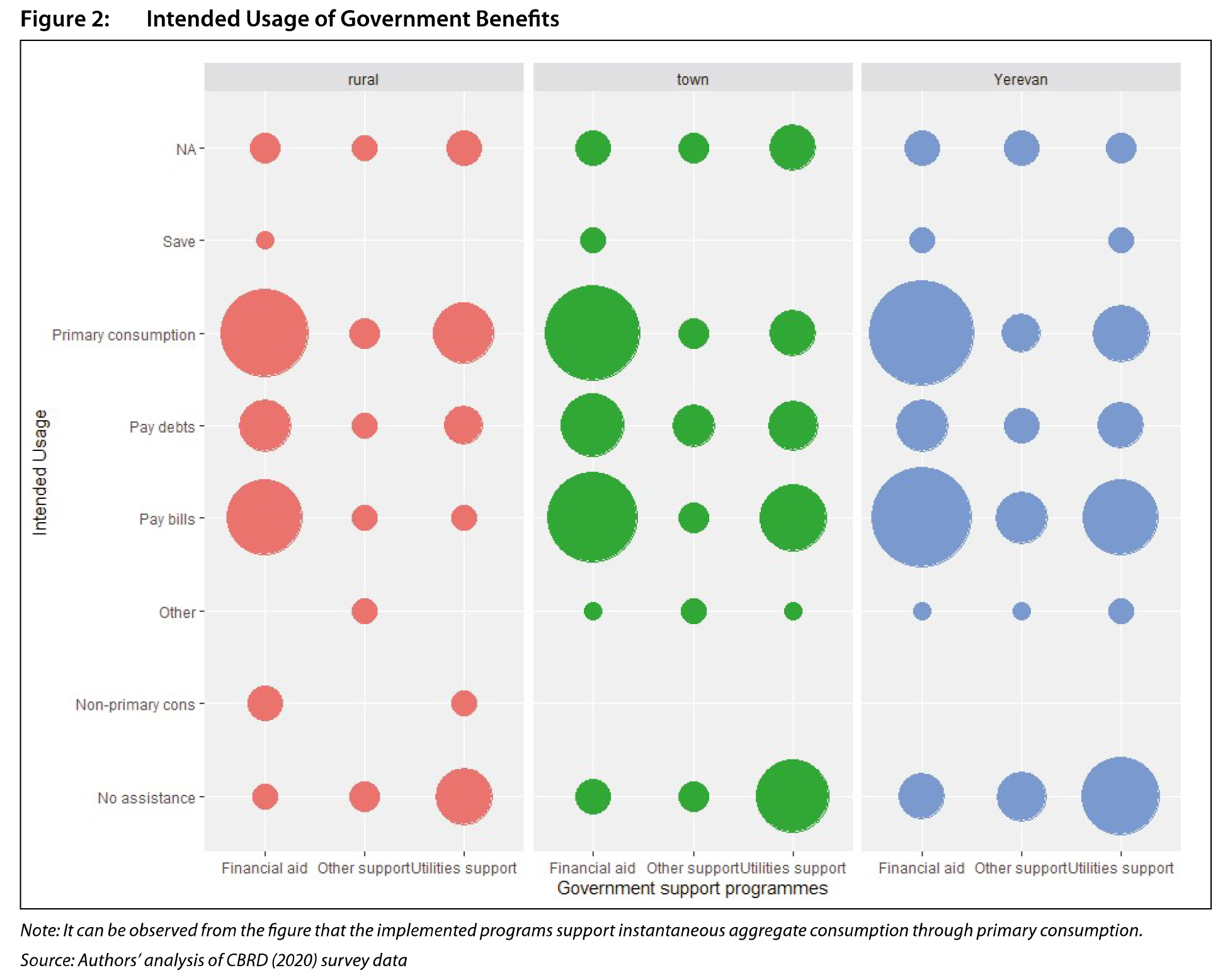
This graphic shows the intended usage of government benefits to address the impacts of the pandemic in Armenia. It can be observed that most assistance is directed towards consumption of primary goods and covering bills. Furthermore, it can be seen that in rural areas, as well as in the capital city Yerevan, social assistance programs covering utility bills substantially increased the consumption of primary products, an observation that may be attributed to the fungibility of money. Still, over 1.5% of the population claimed (at least as an intention) to save the funds. Meanwhile, a disproportionately high share of the announced usage of the funds is directed toward servicing debts, especially in urban areas outside Yerevan, where poverty levels are high.
For more on the mitigation of the social consequences of the COVID-19 pandemic in the three South Caucasus states of Armenia, Azerbaijan and Georgia, read this issue of the Caucasus Analytical Digest.

